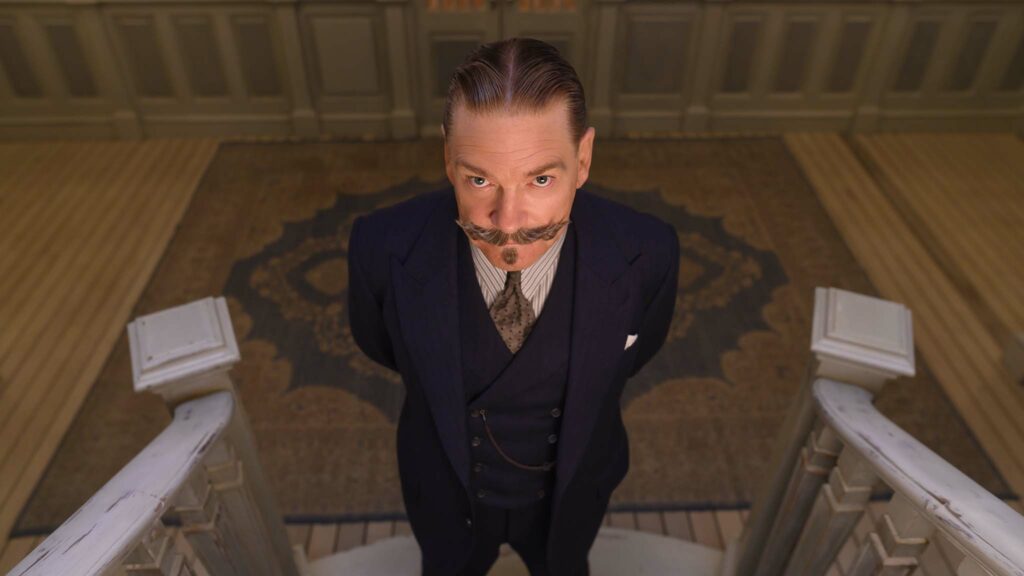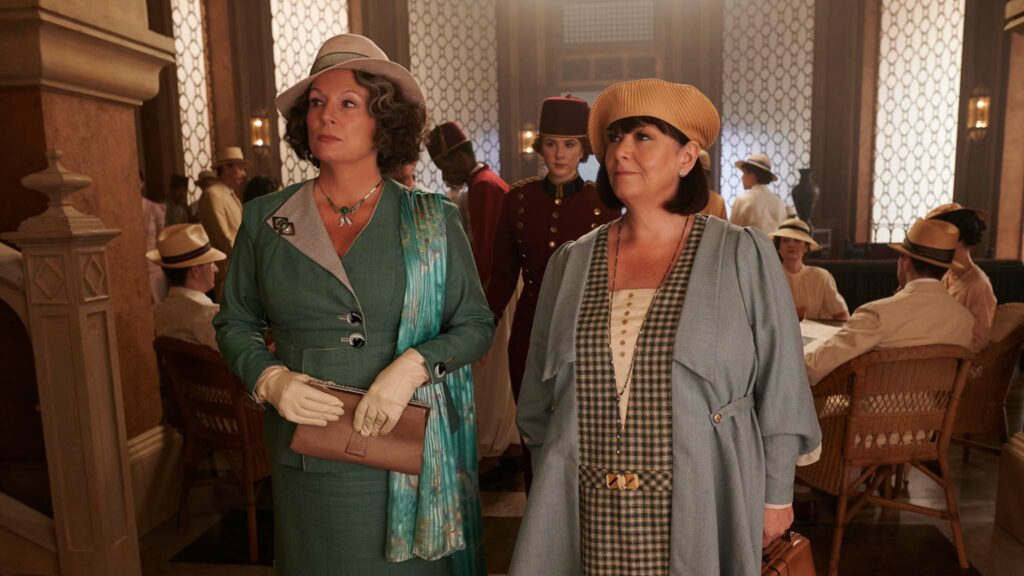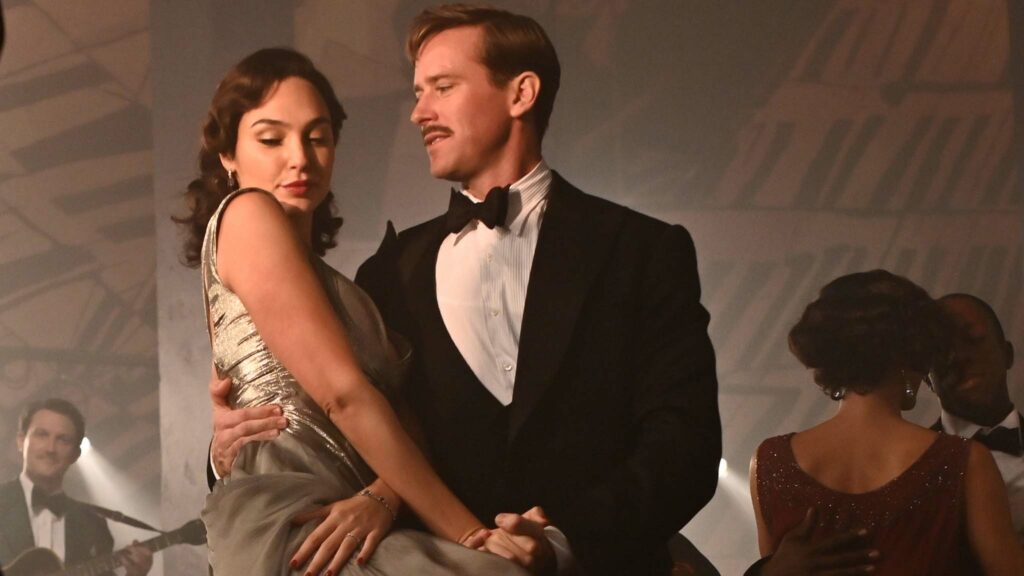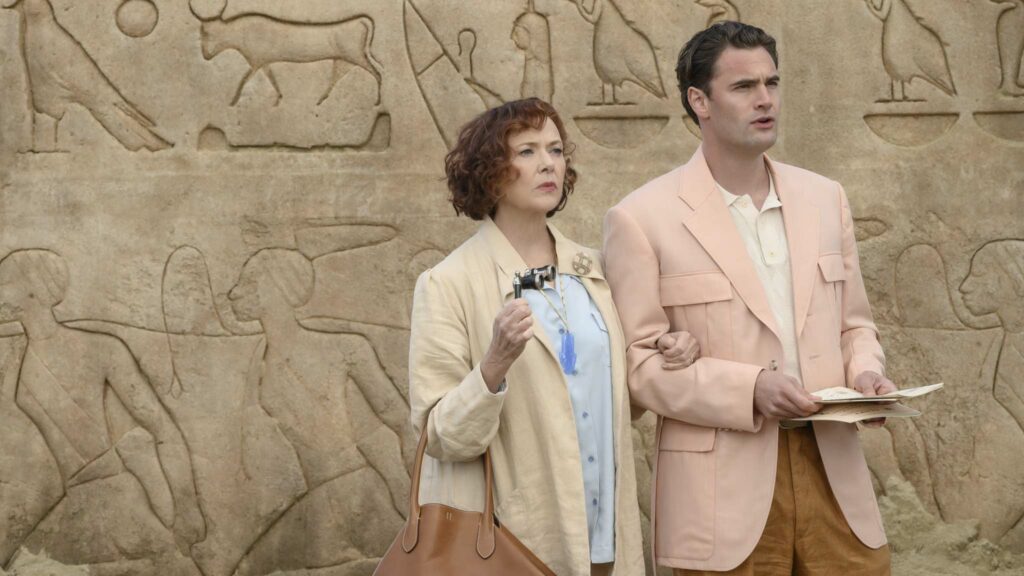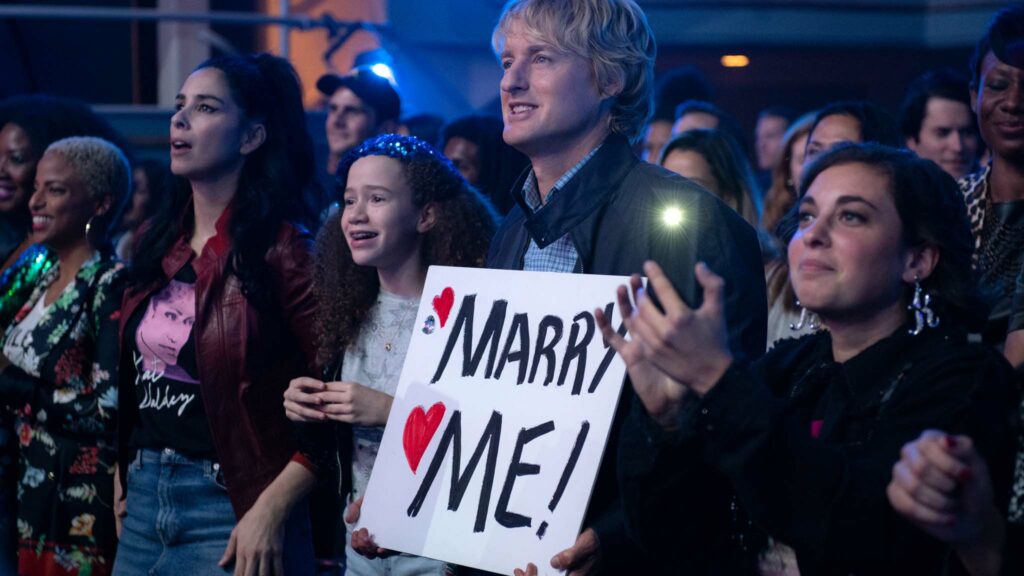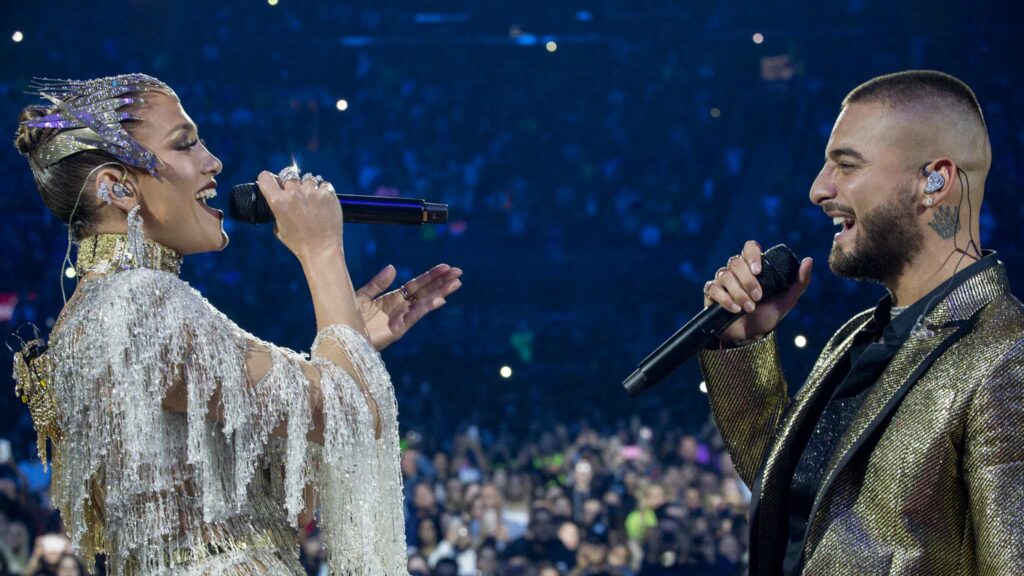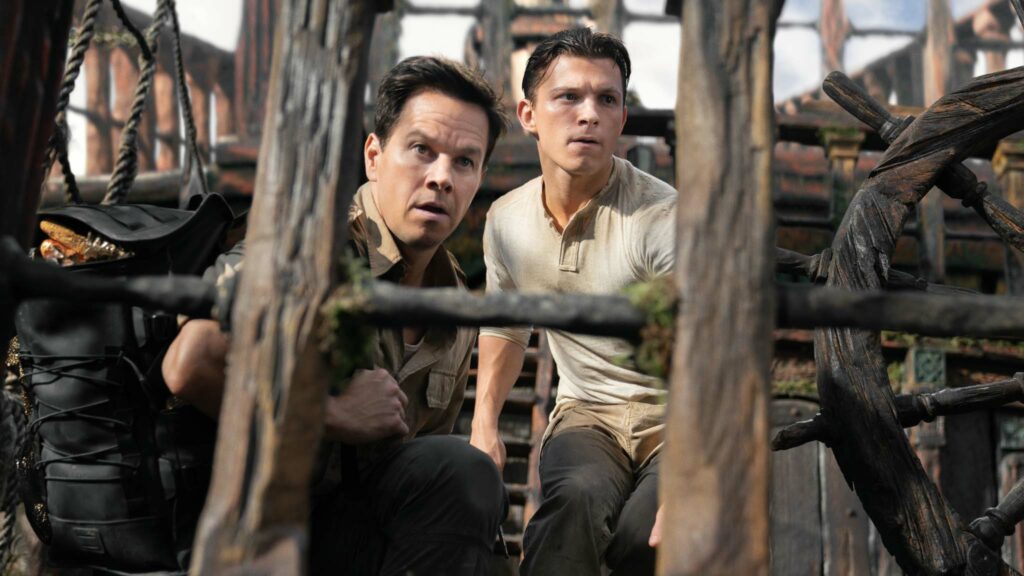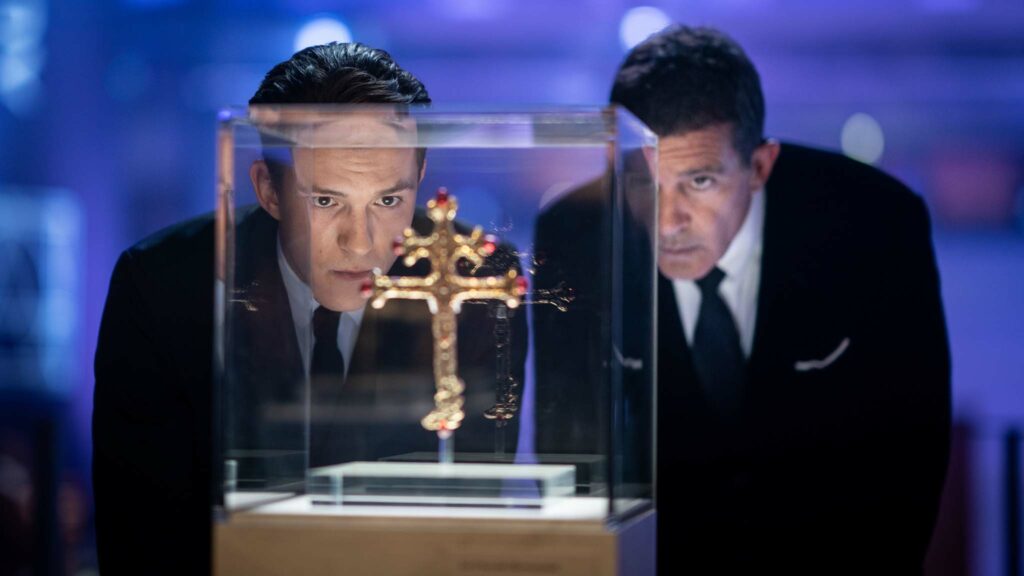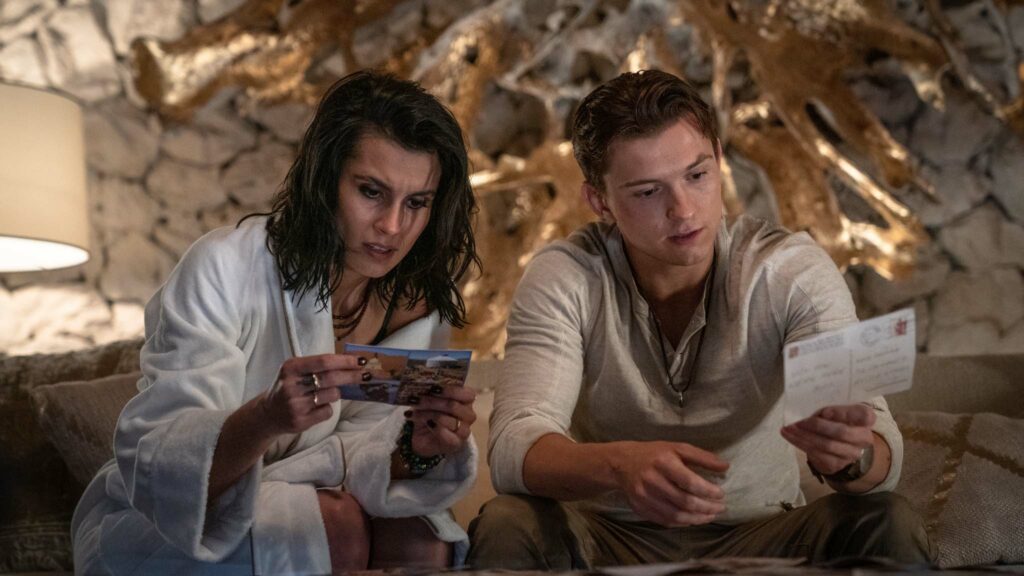Thriller
Death On The Nile (12A)
Review: At the end of director Sir Kenneth Branagh’s handsome 2017 reimagining of a snowbound Murder On The Orient Express, a police officer approaches Hercule Poirot with news of a dastardly deed on the River Nile. That teasing nod to a second investigation for the extravagantly moustachioed Belgian sleuth, played by Branagh, is realised five years later in an equally lavish case torn from the pages of Agatha Christie and adapted by Michael Green.
Off screen, Death On The Nile has almost capsized under the weight of serious allegations levelled against one of the lead actors. Judged purely on the craftsmanship on screen, Branagh’s rendition remains afloat with lustrous production design and costumes and elegantly choreographed set-pieces, but falls short of the grandeur and star-laden suspense of the Oscar-winning 1978 film with Sir Peter Ustinov as Poirot.
A monochrome prologue set in 1914 wartime trenches, which fleshes out Poirot’s anguished romantic past, is Green’s grim invention but, for the most part, his script adheres to the watertight plot of the 1937 novel, building to a grandstand summation that convenes suspects and exposes the guilty with a flourish. Characterisation is disappointingly patchy and thorny issues of sexuality and race are distilled into a couple of lines of dialogue and then largely ignored. Many of the suspects are starved of meaty back stories and struggle to stand out from sweeping computer-generated Egyptian vistas. As corpses stack up in a paddle boat’s food chiller, the finger of suspicion naturally points to the most fully realised protagonists.
In a 1937 London club, Poirot (Branagh) serendipitously witnesses the sexually charged first encounter of glamorous heiress Linnet Ridgeway (Gal Gadot) and Simon Doyle (Armie Hammer), fiance of Linnet’s best friend, Jacqueline de Bellefort (Emma Mackey). Six weeks later, Simon and Linnet are married and celebrating nuptials at the First Cataract Hotel in Aswan. Champagne corks fly for a guest list from the bride’s side of the family: her dutiful maid Louise Bourget (Rose Leslie), cousin and lawyer Andrew Katchadourian (Ali Fazal), aristocratic former fiance Dr Linus Windlesham (Russell Brand), godmother Marie Van Schuyler (Jennifer Saunders) and nursemaid companion Mrs Bowers (Dawn French), and long-time friend Bouc (Tom Bateman) and his artistic mother Euphemia (Annette Bening).
Musical entertainment comes from jazz singer Salome Otterbourne (Sophie Okonedo), managed by her niece Rosalie (Letitia Wright). A jilted and openly jealous Jacqueline gatecrashes the festivities and Linnet implores Poirot – coincidentally in Egypt – to intervene. The wedding party hastily relocates to a luxurious paddle steamer, the Karnak, but Linnet’s unease intensifies because “when you have money, no-one is ever really your friend”.
Death On The Nile invests too much time in Poirot’s past at the expense of the wedding party’s tangled histories and their simmering resentments. If the sleuth returns for a third investigation, that approach will reap rewards but within the confines of this murderous interlude, impeccable style dances merrily over substance.
Find Death On The Nile in the cinemas
Comedy
Marry Me (12A)
Review: As lead actress and producer of Marry Me, Jennifer Lopez turns up her star wattage to 11 in a frothy and instantly disposable romantic comedy about a Latin pop diva, who takes a leap of faith by exchanging vows with a random guy plucked from the crowd of her New York concert. Adapted from Bobby Crosby’s digital comic, director Kat Coiro’s confidently choreographed fantasy remixes rom-com genre staples, supported by new songs from Lopez and Colombian co-star Maluma including the catchy title number and an obligatory empowerment ballad, On My Way.
A decent chunk of running time is devoted to Lopez performing tracks in luminous, lip-glossed close-up so Marry Me operates unabashedly as a slick promotional tool for an album. Thankfully, she forges an appealing on-screen partnership with Owen Wilson and they kindle simmering chemistry as accidental newlyweds scorched by failed previous marriages, who infiltrate each other’s worlds with trepidation.
Frustratingly, the temperature drops a few degrees when they kiss. Erupting passion should never be this polite and respectful. Screenwriters John Rogers, Tami Sagher and Harper Dill apply Instagram filters to characters and every emotionally testing scene, polishing rough edges from a celebrity-reality culture clash set-up a la Notting Hill until the only logical conclusion is a cutesy happy ever after.
Kat Valdez (Lopez) hopes marriage number four will be the charm when she ties the knot on stage at Radio City Music Hall with Grammy-winning boyfriend Bastian (Maluma) after they perform their latest single, Marry Me. She will be wearing a designer gown embellished with 10,000 hand-beaded crystals and the ceremony will stream live to a global audience of 20 million fans. Shortly before the big moment, Kat views leaked video footage of Bastian kissing her assistant (Katrina Cunningham).
Humiliated on the happiest day of her life, Kat stares into the concert crowd and makes a rambling speech (“If you want something different, you have to do something different”). Her tearful gaze settles on strait-laced mathematics teacher Charlie Gilbert (Wilson), who is standing with his daughter Lou (Chloe Coleman) and guidance councillor co-worker Parker (Sarah Silverman), holding a handmade sign that reads, Marry Me.
Impulsively, Kat accepts Charlie’s unintended proposal and one of her dancers officiates the union as jaws drop around the world. Off stage, Kat’s manager Collin (John Bradley) performs damage limitation. Meanwhile, Kat persuades Charlie to embrace her “manic response to an insane situation” and continue their relationship.
Marry Me makes all the right, well-rehearsed moves, showcasing assured performances from Lopez and Wilson alongside Silverman’s reliable comic relief. The script wholeheartedly embraces the mathematics motif, building a simple equation that adds together familiar ingredients then subtracts every tiny obstacle separating Kat and Charlie. The only surprise is that director Coiro takes almost two hours to reach the obvious answer.
Find Marry Me in the cinemas
Action
Uncharted (12A)
Review: In the popular Uncharted video games, a tall, muscular and lightly stubbled treasure hunter named Nathan Drake – supposedly a descendant of 16th-century sea captain Sir Francis – embarks on globe-trotting quests to unearth fabled artefacts accompanied by a silver-tongued father figure, Victor “Sully” Sullivan. In director Ruben Fleischer’s considerably less successful film adaptation, a lithe, boyish and gratuitously topless Nathan Drake played by Tom Holland embarks on a madcap odyssey to unearth the lost treasure of on-screen rapport with co-star Mark Wahlberg as his fortune seeking mentor.
Holland hits a motherlode of fool’s gold in Uncharted, shot directly before box office behemoth Spider-Man: No Way Home. He weathers repeated blows to body and face in elaborate action set pieces including a vertiginous scramble over crates tumbling out of an airborne cargo plane, inspired by a sequence in Uncharted 3: Drake’s Deception.
Fleischer opens the film with this jaw-dropping masterclass in mid-air acrobatics – no character development nor perfunctory plot set-up, just the pure adrenaline rush of Holland battling gravity and gun-toting goons – then reprises the elaborate stunt an hour or so later, this time in flimsy narrative context. It’s one of many curious choices that diminishes Uncharted to breathless chases and bruising fights, bolted together with Indiana Jones-style tomb raiding and a throwaway cameo for actor Nolan North, whose motion-captured performances and vocals bring to life the digital incarnation of Nathan Drake.
When we first encounter the 25-year-old hero (Holland), he is working as a bartender and pickpocketing customers’ jewellery using simple misdirection and sleight of hand. Sully (Wahlberg) exposes the thievery and entreats Nathan to become his business partner as they solve the mystery of hidden gold dating back to the 16th-century expeditions of Portuguese explorer Ferdinand Magellan. Another mercenary, Chloe Frazer (Sophia Ali), joins the odd couple and warns Nathan to be on his guard with Sully, who claims to have close ties to Nathan’s long-lost brother Sam. “Everything out of this one’s mouth is an exaggeration, a half-truth, or an outright lie,” she hisses.
The bickering trio are shadowed by Santiago Moncada (Antonio Banderas), heir apparent to a cut-throat Spanish dynasty which financed Magellan’s doomed expedition. He intends to reclaim his bloodline’s bounty and hires knife-wielding mercenary Braddock (Tati Gabrielle) and two thugs (Steven Waddington, Pingi Moli) to derail Nathan, Sully and Chloe’s hunt.
Uncharted joins an inglorious list of thrilling video games which translate into dispiritingly hollow big screen spectacles. Holland roughs and tumbles with boundless energy but his chemistry with Wahlberg is inert while Banderas dials in the mild-mannered villainy. On-screen violence is staunched to secure a 12A certificate: one character meets an icky demise but their gaping wound permits only the faintest trickle of red. Bloodless perfectly sums up the entire enterprise. Spider-Man? No way. Stay home.
Find Uncharted in the cinemas


